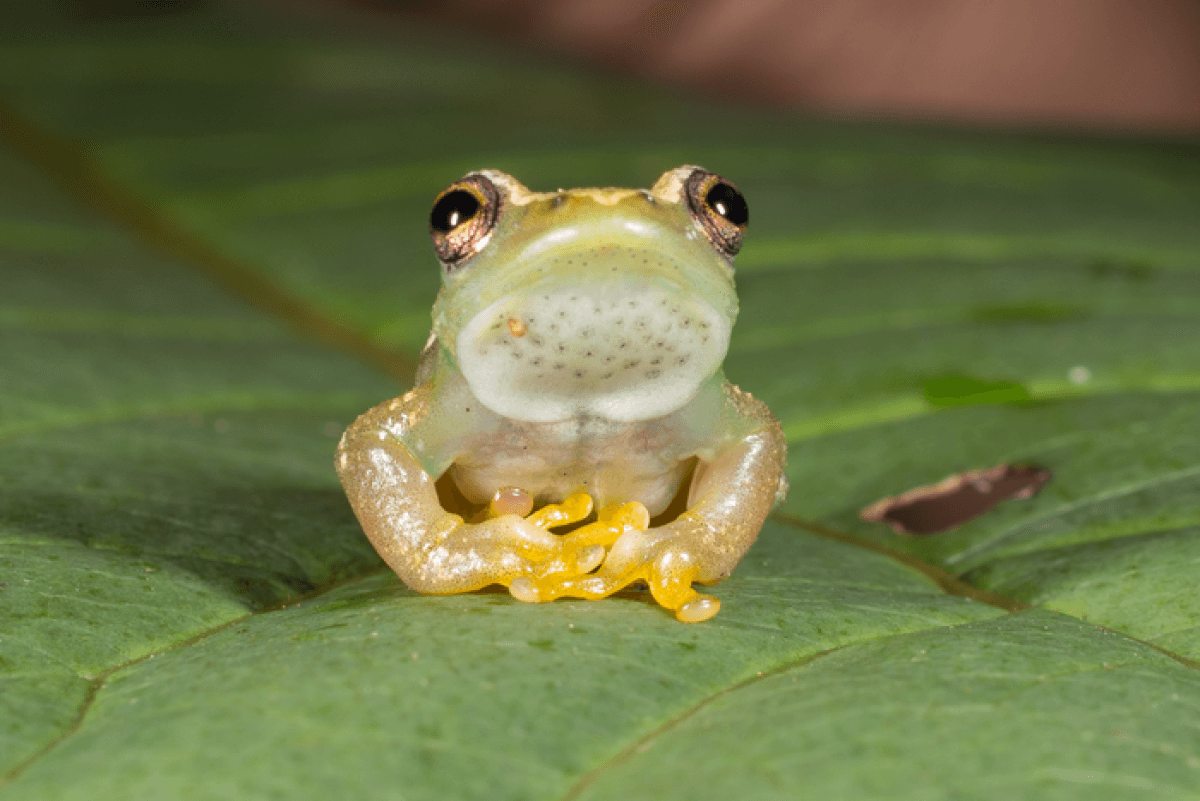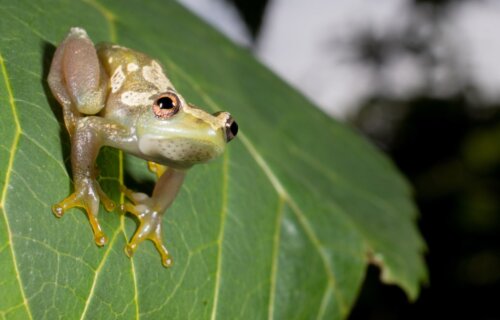CINCINNATI, Ohio — Nature is full of surprises, and a new species in Africa is certainly drawing attention — not for the sound it makes, but for the lack of any noise at all! Researchers with the University of Cincinnati have discovered a never-before-seen “voiceless” frog species. Living in the Ukaguru Mountains of Tanzania, the Ukaguru spiny-throated reed frog does not croak, sing, or ribbit at all. It’s one of the very few frog species that doesn’t vocally communicate with other frogs.
“It’s a very odd group of frogs,” says Lucinda Lawson, a conservation biologist and assistant professor of research, in a university release.
Researchers describe them as “spiny-throated” because of the small spines on the throats of the males. Unlike other frogs, they can’t lean on sounds to recognize their own species, but they can use identifiable spines.
“The male frogs don’t call like most other frogs do. We think they may use the spine as something like Braille for species recognition,” Lawson explains. “Without a call, they need some other way to recognize each other.”
Since there aren’t many of these unique frogs, Lawson also points out that this is a huge win for conversation efforts. Lawson and her international team were able to make such a discovery in 2019 on an amphibian search in the Ukaguru Mountains. They were originally hoping to find a toad that scientists have only seen twice, called Churamiti maridadi.
“Our hopes were not very high. We knew the odds were stacked against us,” adds study co-author H. Christoph Liedtke, a postdoctoral researcher with the Spanish National Research Council.
The team looked all around the streambanks, day and night, documenting their journey and experiences with handheld global-positioning satellite receivers. While they didn’t come away with their original plan completed, they still had a uniquely successful trip.
“Time spent looking for the beautiful tree toad yielded unexpected results. It was a fantastic finding that made the effort well worth it,” Liedtke says.

This newfound reed frog is part of a family of almost 200 species in the genus Hyperolius. After conducting genetic and genomic analyses, however, the team was able to confirm that the frog was different than other members of this family. They were also able to identify their closest evolutionary species, the Hyperolius ruvuensis, which is unfortunately probably extinct.
So, while finding this incredibly unique reed frog is great, the team is also concerned about its survival. Amphibians in general are particularly sensitive to human intervention because they can soak up chemicals right through their skin.
“The Ukaguru Mountains are part of the greater Eastern Arc Rift, a fascinating cradle of biodiversity, with many species endemic to single mountain blocks,” Liedtke says. “The fast population growth in Tanzania means that the mountain forest habitats are under growing threats from people.”
While the extinction of this species of frog may not completely destabilize the ecosystem immediately, it’s important to recognize the cumulative impact of species dying out, according to the team. Rarely do human activities only affect one species, and if you keep chipping away at several different species, which is much more likely to happen, it creates a much more concerning problem. The team is inspired by their work, as it shows them that the world is so much more diverse than they expected. While they have a long way to go before understanding just how far this diversity expands, they’re extremely pleased with this discovery.
The findings appear in the journal PLoS ONE.

